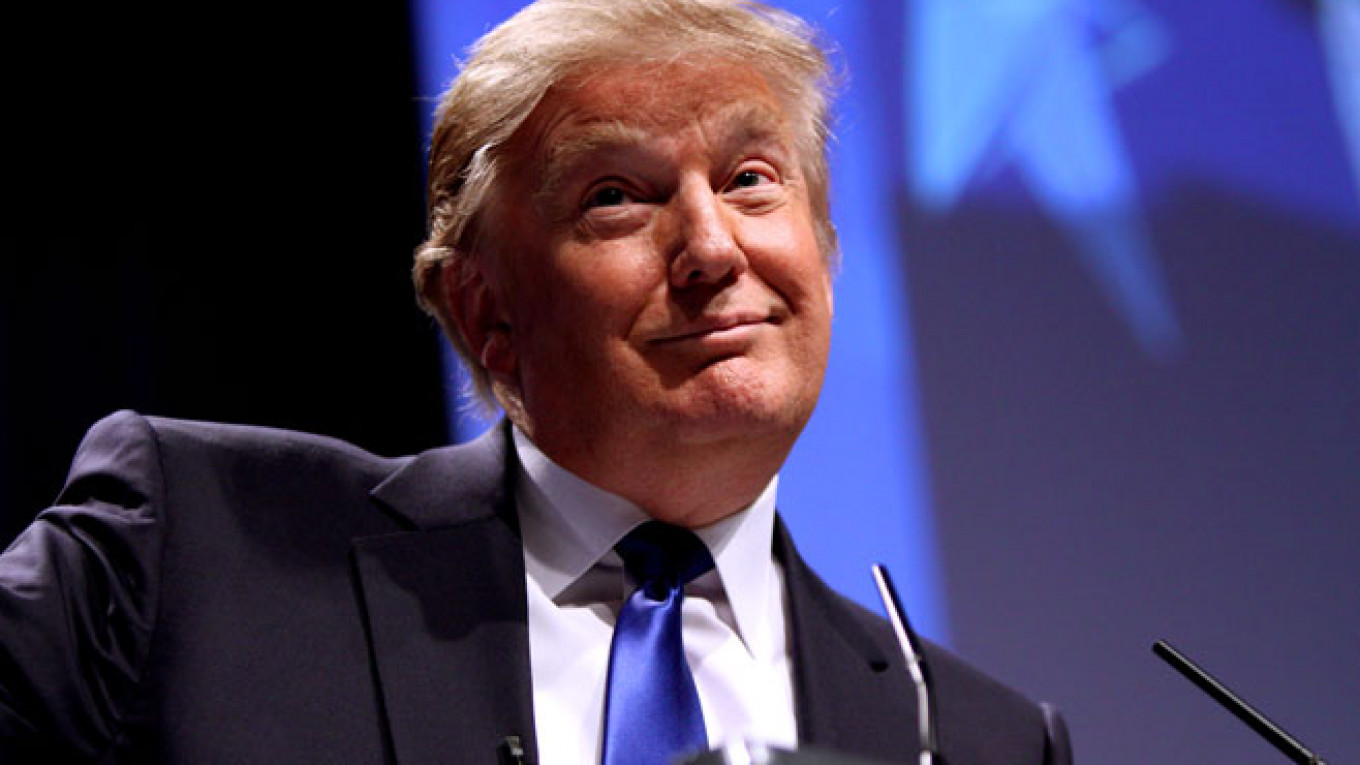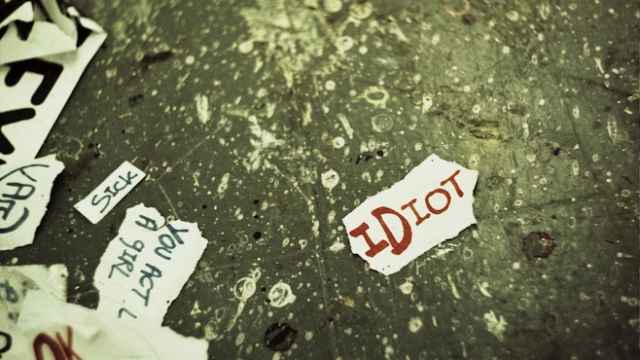
Now that we know a little bit about Barack Obama's views on the Russian president, what does Vladimir Putin think about the possible next American president? Of course, American presidents come and go while the Russian president is eternal… but still. They might be sitting across the negotiating table for eight years.
So far we only have an indication of Putin's opinion of just one candidate, Donald Trump — and that opinion was slightly confused by the difficulties of translation.
What Putin said last December was this: "Он яркий очень человек, талантливый, без всяких сомнений. (He's a very something-or-other person, and he's talented — no question about that.) The translation issue was the word яркий, one of those words that is just so clear and obvious in Russian and just so confusing and ambiguous in translation.
The primary meaning of яркий is shining. It describes something — like the sun or a light — that is bright. Прекрасный день! Яркое солнце, мягкий ветер… (It's a wonderful day! Bright sunlight and a gentle breeze…)
But then яркий can be used in different contexts with different meanings and connotations. It can describe anything that is brightly colored or noticeable. For example, here's what someone said about a kid's party: Яркие костюмы, громкая музыка, дети в восторге (Brightly colored costumes, loud music, and kids in ecstasy.) It can be advice on make-up: Вечером надо обязательно сделать макияж ярче (For the evening you must make your make-up more dramatic.) Or tips for a garden: Немного ярких красок можно добавить, посадив несколько растений настурции (You might add some vibrant colors by planting several nasturtiums.)
In English, we sometimes describe this as sound: Он любит носить яркие галстуки (He loves to wear loud ties.) Этой розе место там, где необходимо декоративное яркое пятно. (This rose is good wherever you need a pop of color.)
And of course, sometimes яркий goes too far: Она слишком ярко одевается (She dresses too garishly.)
Figuratively, яркий refers to anything that stands out, like an example: Он — яркий пример человека, который сам себя сделал (He's a striking example of a self-made man.) Or like impressions: От визита у нас остались самые яркие впечатления (We still have such vivid impressions from our visit.)
The negative connotations of яркий — like those garish or flamboyant ties — seem to be reserved for things, not people. When used to describe people, яркий is generally positive — or in any case, after lots of searching, I couldn't find any examples with clearly negative connotations, and everyone I polled said they'd only use it in a positive sense. So яркий is used to describe someone who has a vivid personality, someone who is a showstopper, someone with charisma. You often hear: Он очень яркая личность! (He's larger than life!) Она одна из самых ярких художников своего поколения (She's one of the most remarkable artists of her generation.)
So when Putin called Trump "очень яркий человек," he was calling him larger than life, a vivid personality, someone who is impressive and commands attention.
The problems of translation had to do with connotation. Did Putin call Trump "brilliant"? Well, yes in the sense of vibrancy of character, not smarts. Did he call him "colorful"? Well, sort of — but in a good way.
Basically, Putin called Trump a standout kinda guy.
Michele A. Berdy, a Moscow-based translator and interpreter, is author of "The Russian Word's Worth" (Glas), a collection of her columns.
A Message from The Moscow Times:
Dear readers,
We are facing unprecedented challenges. Russia's Prosecutor General's Office has designated The Moscow Times as an "undesirable" organization, criminalizing our work and putting our staff at risk of prosecution. This follows our earlier unjust labeling as a "foreign agent."
These actions are direct attempts to silence independent journalism in Russia. The authorities claim our work "discredits the decisions of the Russian leadership." We see things differently: we strive to provide accurate, unbiased reporting on Russia.
We, the journalists of The Moscow Times, refuse to be silenced. But to continue our work, we need your help.
Your support, no matter how small, makes a world of difference. If you can, please support us monthly starting from just $2. It's quick to set up, and every contribution makes a significant impact.
By supporting The Moscow Times, you're defending open, independent journalism in the face of repression. Thank you for standing with us.
Remind me later.








